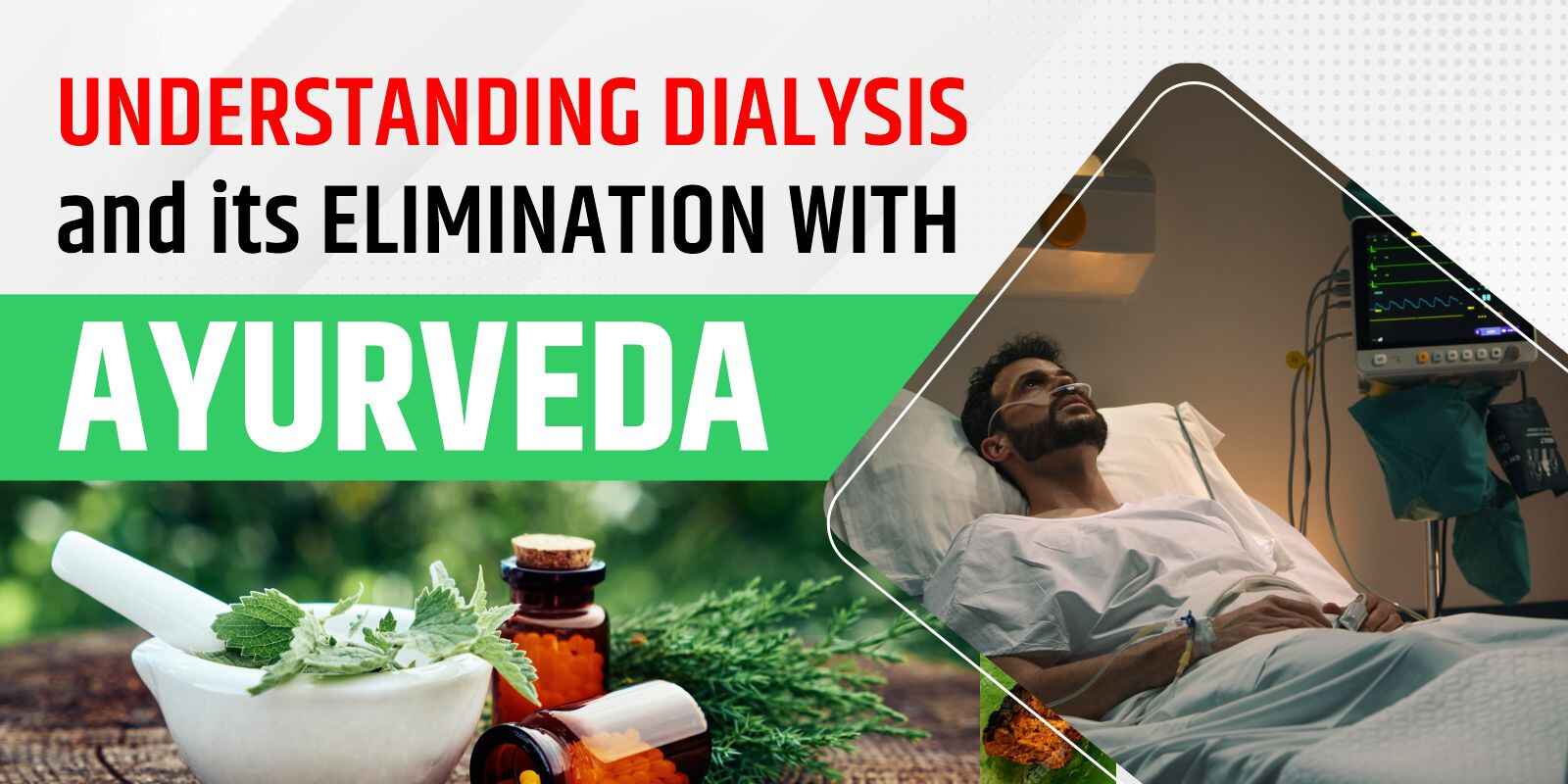
Introduction
Our kidneys work 24/7 to keep the body waste-free. It filters our blood by removing wastes and excess fluids from our body. After filtration, the kidney sends the waste to the bladder, and it gets eliminated through urine. The stage at which kidneys stop performing its overall functions is known as the stage of kidney failure. Study says that our kidney performs only 10 to 15 % of their function after reaching this stage.
At this stage, many patients require Dialysis that has many risk factors associated with it. Many reasons affect our kidneys and bring them to the verge of Dialysis. Reasons that affect your kidneys are:
Want to learn more about alternatives to dialysis? Discover Ayurvedic solutions at Karma Ayurveda. Contact Us Now
In this blog, we will be reading about the ways that can help a person to avoid Dialysis by getting Ayurvedic kidney treatment.
Dialysis is an artificial process that helps in the purification of the blood in the same manner a kidney performs purification. The purification process takes place outside the human body with the help of machines. This process of Dialysis keeps your fluids and electrolytes in balance when your kidneys are not able to perform their activities. It works on the principles of diffusion of solutes and ultra-filtration of fluid across a semipermeable membrane. Today, millions of people are undergoing Dialysis without knowing about the complications related to it. The average life expectancy rate after Dialysis is 4 to 5 years. Patients living with kidney failure have to undergo Dialysis twice or thrice a week.
The kidney filters extra fluids, waste products, and other impurities from the blood and sends them to the bladder for the further process. They help in controlling the blood pressure and level of sugar in the blood. They also control the level of certain harmful chemicals like sodium and potassium in the blood that can affect our body negatively. When our kidneys become incapable of performing its function, there arrives the need for Dialysis. If the person does not undergo harmful dialysis chemicals like salts, and many other waste products get accumulated in our body. However, Dialysis is not a cure for kidney disease or kidney failure, and it just functions like a kidney artificially.
Dialysis is needed when the functioning of our kidneys falls to 15% or less. Dialysis can also be done in case of severe symptoms like shortness of breath, muscle cramps, fatigue. These symptoms are the result of kidney disease itself.
It is essential to make yourself prior ready for Dialysis. Also, knowing more about types of Dialysis will be helpful to you as it will give you more options to choose from.
There are three types of Dialysis. Every kind of Dialysis comes with its significance and complications.
Confused about which dialysis method is right for you? Speak with our specialists at Karma Ayurveda. Book an Appointment.
There are several complications in Dialysis that can harm other parts of the body as well. Some of the difficulties include:
People who undergo long-term dialysis treatment are also at high risk of other serious medical issues. Medical issues like amyloidosis (causes stiffness, joint pain, and swelling in the body) and depression are the most dangerous complications for the Dialysis. Dialysis is a very time consuming and expensive process.
Almost every kidney patient has been asked to make proper changes in his/her diet or to eat healthy food. This is because poor eating can put more pressure on the damaged kidneys and can put the patient in danger of getting kidney failure. By focusing on what you are eating, you can reduce the overall pressure on your kidneys. The diet during Dialysis includes food with low sodium, phosphorous, and protein. Limiting fluids also make your diet a renal friendly diet. There is certainly another dialysis diet that asks for limiting the intake of calcium and potassium.
Here are some food items, which kidney patients should add in his/her diet to avoid Dialysis:
It’s very simple to avoid Dialysis in kidney failure by using Ayurveda. Kidney treatment in Ayurveda is simple, pure, and free from all kinds of side-effects. Ayurveda works with natural herbs, patient diet, and yoga to cure any chronic disease. Kidney treatment in Ayurveda is based on three principles:
Ayurvedic medicines have a positive impact on all the stages of kidney disease. In the starting stage of Ayurvedic medicines, you can’t avoid Dialysis. First, start your treatment with any Ayurvedic health care foundation. After a few months of joining, you can avoid Dialysis. Ayurvedic kidney disease treatment is an ideal solution not because it helps you to avoid Dialysis but also because it cures the damaged kidneys permanently. It is the effectiveness of ayurvedic medicines that allows you to withstand kidney problems.
Ready to explore Ayurvedic treatment to avoid dialysis? Consult with our experts at Karma Ayurveda. Get Started Today.
Disclaimer:- The purpose of the content on this page is not to substitute any professional medical advice but to only provide information to the reader. If the reader is a kidney patient, we recommend not making any diet or routine changes without consulting his/her doctor or dietitian. For appointments, call at our 24×7 helpline: +91-9821929797 or visit www.karmaayurvedahospital.com.
"Ayurveda is not just a system of medicine; it's a way of life. Connect with us to embrace a lifestyle that nurtures your body, mind, and soul."

Certificate no- AH-2023-0186
JAN 05,2023-JAN 04,2026